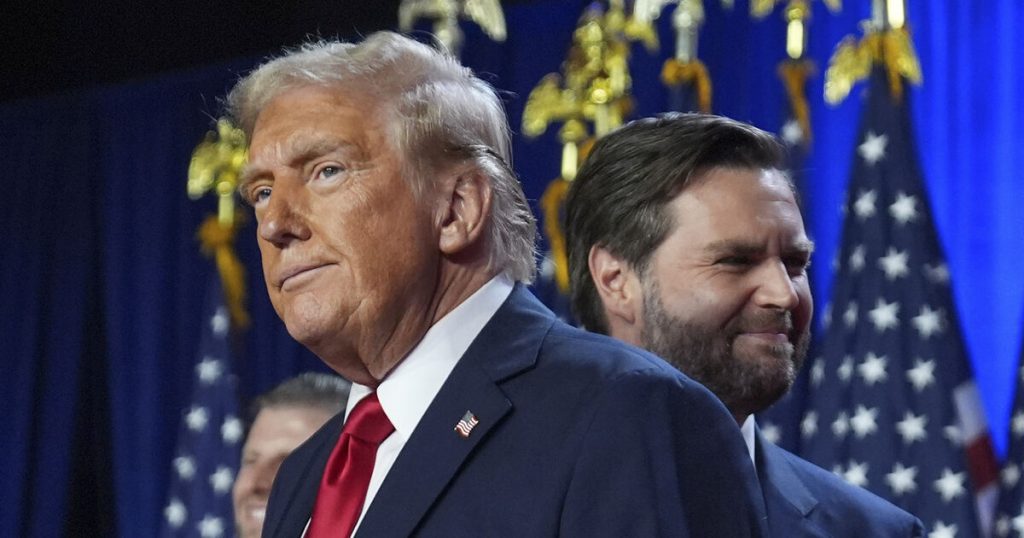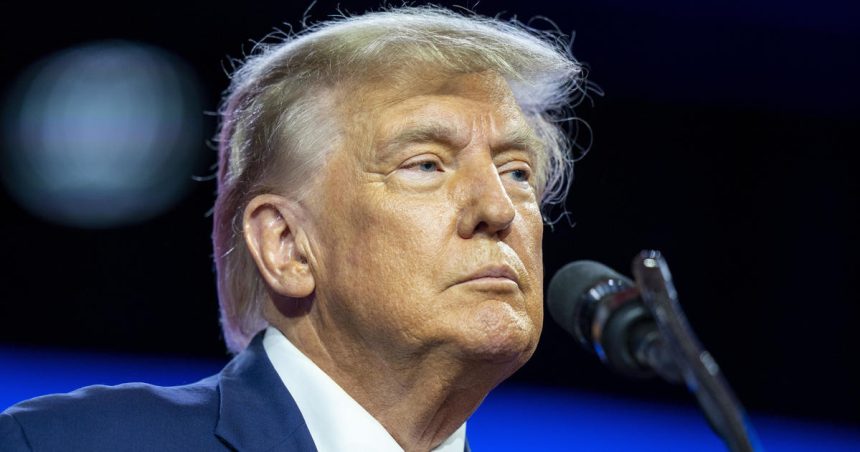U.S. President-elect Donald Trump reaffirmed several of his controversial campaign promises. Speaking on NBC’s Meet the Press, Trump addressed immigration, constitutional rights, and international alliances, doubling down on the hardline positions that characterized his campaign.
Trump wasted no time reiterating his stance on undocumented immigration. When asked whether he intended to deport all individuals in the United States without legal status within the next four years, his response was unflinching. “You have to do it,” Trump stated, underscoring his commitment to enforcing strict immigration policies.
The promise to deport millions of undocumented immigrants was one of the cornerstones of Trump’s campaign. Critics have raised concerns about the logistical, ethical, and economic implications of such a sweeping policy, but Trump has remained steadfast in his position, presenting it as a necessity for national security and the rule of law.

Another controversial point Trump touched on was his intention to end birthright citizenship, a right guaranteed by the 14th Amendment to the U.S. Constitution. He described the policy as “ridiculous” and expressed his belief that it could be eliminated through executive action.
“If we can, through executive action, we’ll end it,” he said, reigniting a debate over one of the fundamental tenets of American citizenship. Birthright citizenship has long been a contentious issue in U.S. politics, with critics arguing that it incentivizes illegal immigration and supporters maintaining that it upholds the principles of equality and inclusion.
READ ALSO: BREAKING: Syrian President, Bashar al-Assad and Family in Moscow
Legal experts have pointed out that ending birthright citizenship would likely face significant legal challenges, as it directly contradicts the Constitution. However, Trump’s remarks suggest he is willing to test the limits of executive authority to pursue his agenda.
On the international front, Trump addressed his position on the North Atlantic Treaty Organization (NATO), a cornerstone of Western security since World War II. Trump reiterated his criticism of NATO allies, accusing them of not contributing their fair share to the alliance.

“They have to pay their bills,” Trump stated firmly, indicating he would “absolutely” consider withdrawing the United States from NATO if member nations failed to meet their financial obligations.
This stance aligns with Trump’s broader “America First” policy, which emphasizes reducing the U.S. burden in global partnerships. Critics argue that such a move could destabilize the alliance and embolden adversaries like Russia, but Trump insists that fairness and accountability are paramount.
READ ALSO: Saudi Arabia Cuts Oil Prices for Asia Amid Weak Market Outlook
Trump’s comments signal a presidency likely to challenge long-standing norms and policies, both domestically and internationally. His positions on immigration and birthright citizenship could spark significant legal battles and social unrest, while his stance on NATO raises questions about the future of U.S. leadership on the global stage.

For his supporters, Trump’s steadfast commitment to his campaign promises represents a refreshing break from traditional politics. For his detractors, it raises concerns about the direction in which the country is headed.
As the world watches, one thing is clear: Trump’s presidency is poised to reshape the political landscape in ways that are as unpredictable as they are polarizing. Whether his vision leads to the change his supporters desire or the challenges his critics fear remains to be seen.

